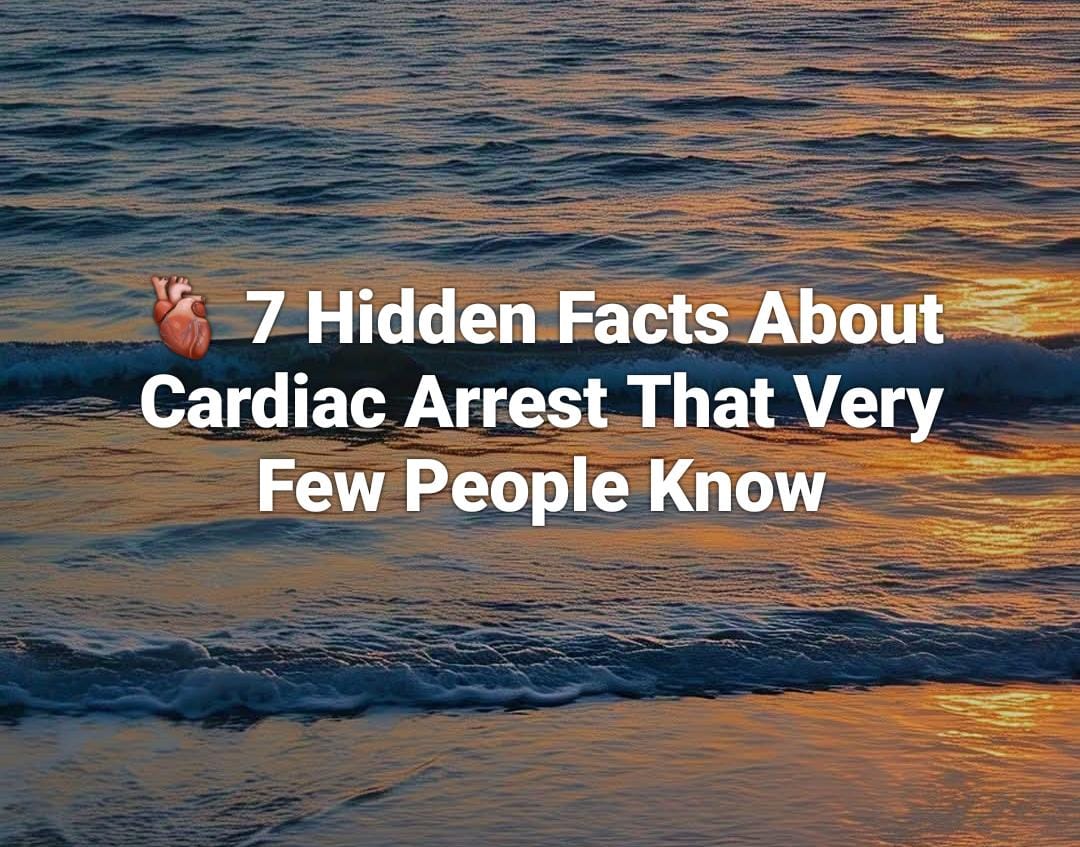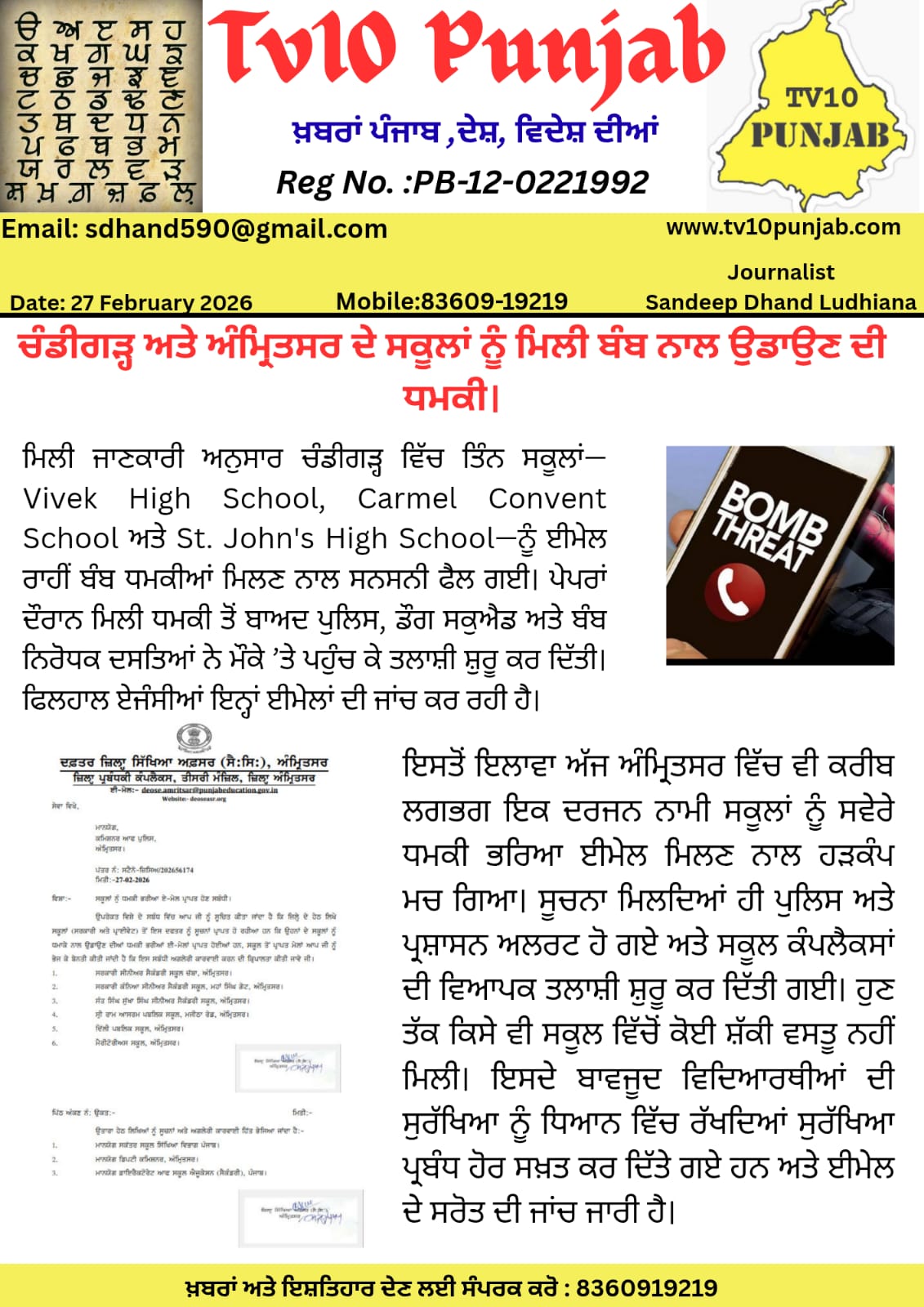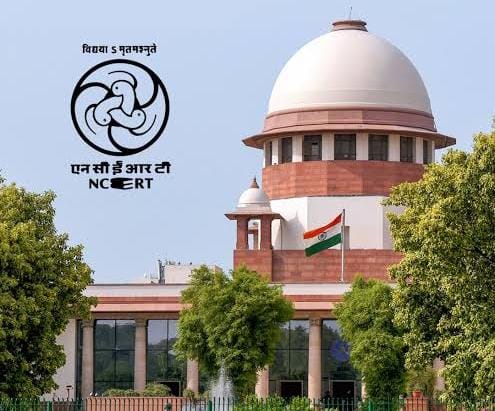Health Desk
Sandeep Dhand
Nutritionist And Health Educator
Introduction
Cardiac arrest is one of the most sudden and terrifying medical emergencies. It can strike without warning — at home, work, or even while sleeping — and within minutes, it can take a life if help doesn’t arrive in time.
Most people believe cardiac arrest only happens to those with heart disease or elderly individuals. However, new research shows that even young and apparently healthy people can suffer from it.
While we all know that CPR and early treatment save lives, there are many hidden facts about cardiac arrest that remain unknown to most. Understanding these can help prevent tragedy and improve survival chances.

Let’s explore seven scientifically proven but little-known facts about cardiac arrest — and how small changes in your lifestyle and nutrition can make a big difference.
⚡ 1. Cardiac Arrest Can Happen Without Heart Disease
This is one of the most surprising facts: you don’t need to have heart disease to suffer from cardiac arrest.
In many cases, the heart appears completely normal — no blocked arteries, no cholesterol issues — yet the person collapses suddenly. The reason lies not in the heart’s structure, but in its electrical system.
The heart beats through electrical impulses. When these signals become irregular due to a genetic or electrical defect, the heartbeat becomes chaotic — a condition called Ventricular Fibrillation (VF).
This causes the heart to stop pumping blood properly, leading to immediate loss of consciousness.
Scientific Explanation:
Some people are born with conditions like:
Long QT Syndrome
Brugada Syndrome
Catecholaminergic Polymorphic Ventricular Tachycardia (CPVT)
These are rare disorders affecting heart rhythm. They don’t show symptoms in everyday life but can suddenly trigger cardiac arrest under stress, excitement, or even exercise.
Key Takeaway:
Even if your heart “looks” normal, an electrical fault can still cause cardiac arrest. That’s why periodic ECG and family history screening are important — especially if any close relative died suddenly at a young age.
💔 2. Extreme Emotions Can Literally Stop Your Heart
It might sound dramatic, but it’s true — strong emotions can cause a temporary heart shutdown.
This is known as “Broken Heart Syndrome” or Takotsubo Cardiomyopathy.
When a person experiences intense grief, fear, or anger, the body releases a flood of stress hormones such as adrenaline and cortisol. These chemicals shock the heart muscle, making it weak and unable to pump blood.
This can mimic a heart attack or, in some cases, lead to full cardiac arrest.
Real-Life Example:
After the sudden death of a loved one, some people faint or lose consciousness — this is often not just “shock” but an actual heart reaction.
Research Insight:
Doctors discovered that this condition is more common in women above 50, especially after emotional loss or trauma. The good news? Most people recover with rest and treatment, but some experience fatal arrhythmias.
Key Takeaway:
Emotional control and mental peace are not just psychological — they’re cardiac protection.
Meditation, breathing exercises, and yoga help regulate stress hormones and protect heart rhythm.
🌙 3. Cardiac Arrest Can Happen During Deep Sleep
Another shocking but true fact — some people suffer cardiac arrest in their sleep.
This often happens silently and goes unnoticed until morning. The cause is usually related to sleep disorders such as Obstructive Sleep Apnea (OSA).
In sleep apnea, the airway collapses temporarily, stopping breathing for a few seconds. This drops oxygen levels and forces the heart to work harder. Repeated oxygen dips during the night disturb the heart’s electrical balance, leading to deadly arrhythmias.
Warning Signs of Sleep Apnea:
Loud, irregular snoring
Gasping or choking during sleep
Feeling tired even after 8 hours of rest
Morning headache or dry mouth
Sleep apnea increases the risk of cardiac arrest, high blood pressure, and stroke.
Key Takeaway:
If you or your partner snore loudly or stop breathing during sleep, consult a doctor. Treating sleep apnea can reduce cardiac arrest risk by more than 50%.
🧬 4. Your Genes Can Predict Cardiac Arrest Risk Years Before Symptoms
Your DNA holds valuable clues about your heart’s future.
Scientists have identified gene mutations that increase the risk of sudden cardiac arrest, especially in young, healthy individuals and athletes.
Inherited Conditions Include:
Hypertrophic Cardiomyopathy (HCM) – thickened heart muscles
Arrhythmogenic Right Ventricular Cardiomyopathy (ARVC) – fatty replacement of heart muscle
Brugada Syndrome – abnormal electrical activity
These can be detected through genetic testing and echocardiography long before symptoms appear.
If a family member died suddenly under age 40, every close relative should be screened.
Key Takeaway:
Genetic screening saves lives. It helps identify silent carriers and allows preventive care, lifestyle adjustments, and even preventive device implantation (ICD).
🧊 5. Cooling the Body After Cardiac Arrest Saves the Brain
When a person is revived after cardiac arrest, the brain may already be damaged due to lack of oxygen.
To protect it, doctors use a technique called Therapeutic Hypothermia or Targeted Temperature Management (TTM).
How It Works:
The patient’s body temperature is cooled to about 32–34°C for 24 hours using cooling pads or special blankets.
This slows brain metabolism, reduces inflammation, and helps the brain recover from oxygen deprivation.
Fact:
Hospitals that follow TTM protocols show higher survival rates and better neurological recovery in cardiac arrest patients.
Key Takeaway:
If someone survives a cardiac arrest, ask doctors about hypothermia therapy — it can make the difference between full recovery and permanent brain damage.
📱 6. Smartwatches Can Detect Heart Problems Before They Turn Deadly
Modern technology is saving lives every day.
Today’s smartwatches (like Apple Watch, Samsung, Fitbit, etc.) can monitor your heart rate and even record ECGs.
What They Can Detect:
Irregular heartbeat (Atrial Fibrillation)
Very slow or fast pulse
Sudden drop in oxygen saturation
Inactivity after a fall
Some devices automatically alert emergency contacts or local authorities when a potential cardiac arrest is detected.
Real-World Example:
In 2023, a man in California was alerted by his smartwatch about irregular heart rhythm. He rushed to the hospital, and doctors confirmed he was minutes away from cardiac arrest. The early alert saved his life.
Key Takeaway:
Smart devices are not toys — they are personal health guards. Wearing one could literally save your life.
🧃 7. Magnesium – The Hidden Mineral That Protects the Heart
Most people know about calcium and potassium for heart health, but magnesium is the real unsung hero.
Magnesium stabilizes the heart’s electrical system, controls muscle contraction, and prevents irregular heartbeats.
In hospitals, when a patient develops a dangerous rhythm called Torsades de Pointes, doctors give magnesium sulfate injections — which can stop the arrhythmia instantly.
Magnesium-Rich Foods:
Pumpkin seeds
Spinach
Almonds and cashews
Avocado
Lentils and beans
Dark chocolate (in moderation)
Key Takeaway:
Include magnesium-rich foods in your daily diet. A mild deficiency can increase the risk of arrhythmia and cardiac arrest.
🩸 Bonus Hidden Fact – Skin Color Can Warn You Seconds Before Collapse
Right before cardiac arrest, some people show bluish or grayish discoloration on their lips or fingertips.
This happens because oxygen levels drop dramatically as the heart stops pumping blood.
It’s a very subtle sign — often noticed by family members seconds before the person collapses. Recognizing it early and calling for help can save precious time.
🥗 Heart-Protective Diet Plan to Prevent Cardiac Arrest
A healthy diet is one of the strongest shields against heart diseases and cardiac arrest.
Below is a heart-friendly diet plan that supports blood pressure control, cholesterol management, and rhythm stability.
Dietary Rules
✅ Eat small, frequent meals
✅ Limit salt to 1 teaspoon per day
✅ Prefer boiled, steamed, or grilled food
✅ Use healthy oils (olive, sunflower, mustard)
✅ Drink 7–8 glasses of water daily
✅ Avoid refined sugar, white flour, and processed food
🌅 Morning (6:30 AM)
1 glass warm water with lemon
5 soaked almonds or 2 walnuts
10-minute breathing or meditation session
🍽️ Breakfast (8:00 AM)
Vegetarian Option:
Oatmeal or porridge with low-fat milk
1 apple or papaya
1 spoon flaxseed powder
Non-Vegetarian Option:
2 egg whites + 1 brown bread slice + green tea
☀️ Mid-Morning Snack (10:30 AM)
1 cup coconut water or fresh fruit juice (no sugar)
Handful of roasted chana or pumpkin seeds
🍛 Lunch (1:00 PM)
Vegetarian:
2 multigrain chapatis or 1 bowl brown rice
1 cup moong dal or masoor dal
Mixed vegetables (carrot, beans, spinach)
Salad (cucumber, beetroot, tomato)
Non-Vegetarian:
Grilled fish or boiled chicken (2–3 times per week)
Steamed vegetables
1 chapati or brown rice
🌤️ Evening Snack (4:30 PM)
Green tea + handful of roasted makhana or fruit bowl
🌇 Dinner (7:30 PM)
Clear vegetable soup + 1 chapati
Boiled vegetables or lentil stew
Avoid heavy curries and fried food
🌙 Before Bed (9:00 PM)
1 cup warm skimmed milk with a pinch of turmeric
Foods to Avoid
Fried, spicy, and oily items
Red meat and processed meats
Soft drinks, sweets, pastries
Excess salt (pickles, chips, sauces)
Alcohol and smoking
Foods to Include Regularly
Fruits: Banana, orange, apple, berries
Vegetables: Broccoli, spinach, beetroot, gourd
Whole grains: Oats, barley, quinoa
Proteins: Lentils, beans, tofu, egg whites, fish
Fats: Olive oil, flaxseed, chia, nuts
❤️ Conclusion
Cardiac arrest doesn’t always come with warning signs — but knowledge is the first line of defense.
Most people think it’s just a heart problem, but as we’ve seen, it can be triggered by emotions, sleep, genetics, or even lack of magnesium.
Staying calm, getting regular checkups, maintaining good sleep, and eating a balanced, heart-friendly diet are the real tools to protect your life.
A few minutes of CPR training can also turn you into someone’s lifesaver.
Remember, your heart works tirelessly for you — give it the gift of good nutrition, peace, and care.



